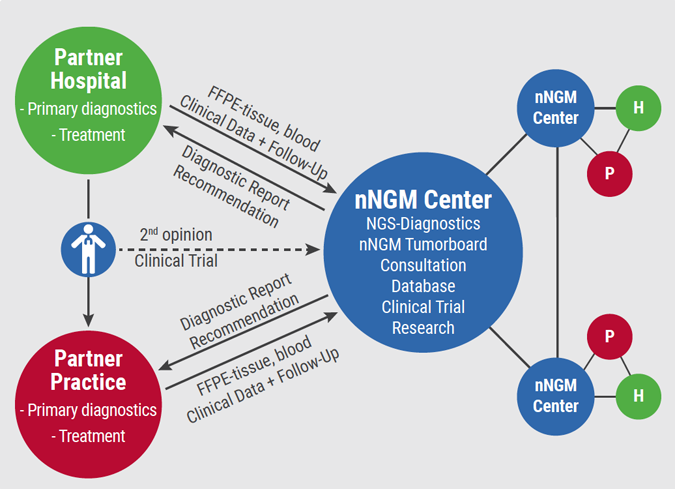In the retrospective study by Takahashi et al., patients were investigated who received EGFR TKI (re-) treatment between January 2008 and August 2017. Overall survival, response rate, and time to treatment failure for each administered TKI were assessed, for patients who discontinued EGFR TKI due to progressive disease and patients who discontinued the TKI as a result of AEs [1]. A total of 1,400 patients from 11 institutions were enrolled in this study. Of those, 570 patients received retreatment with EGFR TKI, and 541 were eligible to participate.
As much as 395 patients discontinued initial EGFR TKI treatment because of disease progression. Re-administration of subsequent gefitinib/erlotinib/afatinib in these patients resulted in response rates of 8%/8%/18% and median time to treatment failure of 4.9/3.2/4.3 months, respectively. The median time to retreatment failure for the patients who originally discontinued because of AEs was significantly longer than for the patients who originally discontinued due to progressive disease (10.8 months vs 3.8 months, P<0.0001). In both groups, overall survival was significantly better for patients receiving retreatment with EGFR TKI compared with patients without retreatment (HR 0.256, P< 0.0001 for initial discontinuation due to AEs; HR 0.456, P<0.0001 for initial discontinuation due to progression). It was thus concluded that retreatment with EGFR TKI was effective for both patient groups.
- Takahashi K, et al. P2.14-11. WCLC 2019.
Posted on
Previous Article
« Tackling immunotherapy resistance Next Article
Less focus on quality of life in recent phase 3 trials »
« Tackling immunotherapy resistance Next Article
Less focus on quality of life in recent phase 3 trials »
Table of Contents: WCLC 2019
Featured articles
Five-fold increase of OS at 5 years with nivolumab vs docetaxel
Screening, Detection, and Diagnosis
Non-Small-Cell Lung Cancer
Five-fold increase of OS at 5 years with nivolumab vs docetaxel
Promising phase 1 results of novel KRAS-inhibitor in NSCLC
Selpercatinib (LOXO-292) shows durable activity in RET fusion-positive lung cancer
Other Thoracic Malignancies
Immuno-Oncology
Nivolumab + ipilimumab safe first-line treatment for NSCLC patients with comorbidities
Targeted Therapy
Phase 3 Trial Updates
First-line pembrolizumab monotherapy offers durable OS benefit vs chemotherapy in NSCLC patients with high PD-L1 expression
Related Articles


June 25, 2019
Experiences from Germany
November 21, 2018
Spread through air spaces is prognostic in lung neuroendocrine tumours
© 2024 Medicom Medical Publishers. All rights reserved. Terms and Conditions | Privacy Policy
HEAD OFFICE
Laarderhoogtweg 25
1101 EB Amsterdam
The Netherlands
T: +31 85 4012 560
E: publishers@medicom-publishers.com

